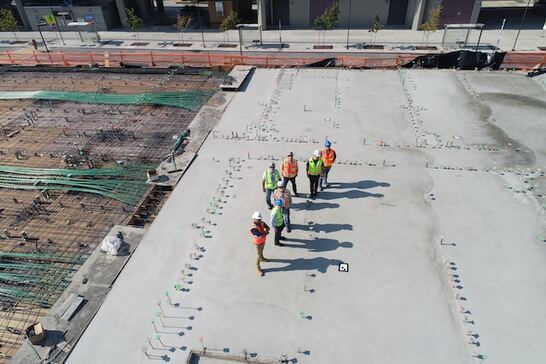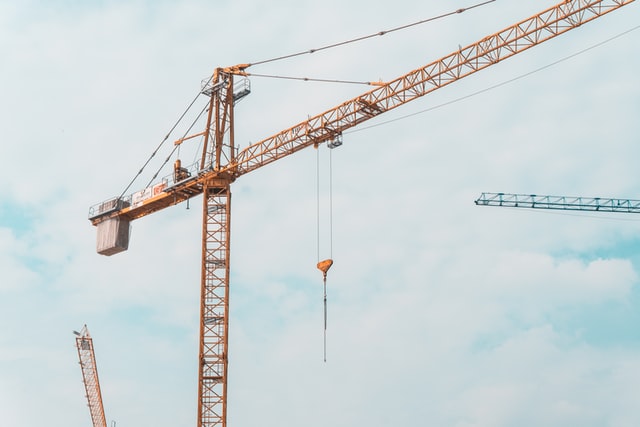|
By Attorney Edward Jesson
The North Carolina Constitution, and North Carolina statutes, give contractors the right to file mechanic’s liens if they are owed money for completing “improvements” on real property. Improvements are defined in a statute, but generally speaking, anyone who performs work on real property, be it renovations, grading, architectural work, or otherwise, can file a mechanic’s lien in North Carolina. The purpose of filing a mechanic’s lien is to have the debt owed to the contractor paid by the responsible party (often, the owner of the real property). A contractor has 120 days from the “date of last furnishing” to file the lien. The “date of last furnishing” is simply the last date that the contractor (or architect, etc.) performed work on the real property. It is best to be conservative with this date as courts have ruled in the past that punch list items performed after the date of last furnishing do not push that date out further. The mechanic’s lien has to be filed with the clerk of court in the county where the real property is located and formally served (like a lawsuit) on the property owner and any other contractors that may be affected by the lien. It is important that the lien be properly drafted when it is filed—if there is a mistake and the 120-day deadline passes, you cannot simply amend a lien. Instead, the lien must be released and a new lien filed in its place. The contractor then has 180 days (again, from the date of last furnishing) to “enforce” the lien. To enforce a lien, you file a lawsuit and ask the court declare that your lien is valid and confirm the debt amount. Oftentimes, a lien enforcement lawsuit will also include other claims, such as a claim for breach of contract. If the contractor is successful, he/she can then request that the court order what is essentially a foreclosure sale on the property to satisfy the debt. If there are other liens attached to the property, like a mortgage, the contractor will have to get in line. The existence of other liens is something to take into account when evaluating the benefits of moving forwards with a lien enforcement action. In reality, most lien situations are resolved prior to a foreclosure sale, because (1) property owners don’t want their property sold and (2) attorney’s fees may be awarded in the lien enforcement lawsuit. North Carolina’s mechanic’s lien statute contains an attorney’s fee provision that awards attorney’s fees to the prevailing party. That is very rarely the case in the United States (normally, parties are responsible for their respective fees, regardless of whether they win or lose), so it can be a powerful negotiating tool. If a contractor loses, they may have to pay the other side’s attorney’s fees, which can often total more than the debt owed itself, so it is important to seek the advice of a construction lawyer when evaluating whether you should file a mechanic’s lien. There are many other factors to consider when getting ready to file a lien, and there are other types of liens that can be filed by subcontractors and others involved in the construction process. Should you have an issue with collecting money from a client or have had a lien filed against your property, please give us a call to help with your issue.
0 Comments
By Attorney Edward Jesson
In January of this year, the North Carolina legislature passed some significant changes to North Carolina’s mechanics lien laws that went into effect on March 1, 2022. The main changes to the law make void and unenforceable contractual provisions requiring lien waivers as a condition for progress payments, modify the attorneys’ fee provisions contained in the lien statutes, and affect the design-build contracting process. Chapter 22B of the North Carolina General Statutes, titled “Contracts Against Public Policy,” has been amended to include a new Section 22B-5, which provides that requiring someone to submit a waiver or release of lien as a condition to receiving progress payments under a construction agreement or design professional agreement are void and unenforceable unless limited to the progress payments actually received in exchange for the lien waiver. In other words, broad blanket lien waivers in exchange for progress payments are now unenforceable unless the lien waiver is specifically drafted and narrow enough in scope to only apply to the money actually being received by the party applying for payment. The attorneys’ fee section of the mechanics lien statutes has been updated to specify the method that the court or arbitrator must use to determine which party is the “prevailing party” in circumstances where attorneys’ fees may be at issue. Instead of the Plaintiff in a lawsuit having to obtain a judgment of at least 50% of the amount it claimed, which was the case prior to March 1, the court or arbitrator will look to the party whose monetary position at the beginning of the trial is closest to the amount of the final judgment or arbitration award. The new statute also specifically allows the court or arbitrator to look at several factors, including the economic circumstances of the parties or whether one party unreasonably exercised its superior bargaining power (e.g., a very wealthy general contractor working with a relatively small subcontractor). This process, while a big change to the existing law, should have the effect of giving much more certainty when evaluating whether the court or arbitrator is likely to grant attorney’s fees when it comes time to try a case. The changes to the design-build process only appear, at this time, to affect the design-build process as it applies to State funded projects. The changes include adding statutory definitions for “design builder,” “design professional,” “first-tier subcontractor,” “licensed contractor,” “licensed subcontractor,” “unlicensed subcontractor,” “costs of the subcontractor work,” “general conditions,” and “key personnel.” The changes also now require design builders responding to requests for proposals from the government to select their project team by one of two methods that are outlined in the new law. Furthermore, the law makes some changes specific to the bidding process for publicly funded bridging contracts and makes it clear that the requests for proposals public notice provisions require the owner to provide a list of general conditions for which the design builder needs to provide a fixed fee in its response to the proposal. This is not an exhaustive list of the changes that have been made, but given the nature and number of changes to the public design-build process, it is important to carefully review these new requirements prior to bidding on publicly funded design build projects. These new laws will have a significant impact on many contracts used in North Carolina, litigation over attorneys’ fees in lien claims, and those design-builders engaged in the public bidding process. Should you require assistance with any of these changes, please do not hesitate to call Jesson & Rains. |
Subscribe to our newsletter.AuthorKelly Rains Jesson Categories
All
Archives
July 2024
|
|
SERVICES |
SUPPORT |
©Jesson & Rains, PLLC ALL RIGHTS RESERVED.



 RSS Feed
RSS Feed

